Fergal McGrath – Theatre Manager
Fergal is Manager of the Town Hall Theatre in Galway. He was formerly manager of Galway Arts Festival, and Managing Director of Druid Theatre.
More from...
Can you tell us a bit about your background?
I'm originally from Tuam and as a teenager, I was involved in a very vibrant music scene. I suppose the experience and interest from that meant that when I went to college, first in Galway, then in Dublin in UCD, I subconsciously or unconsciously found myself involved in events and societies and through that, I made a lot of friends and contacts. I worked in Dublin for seven years after college, and through my music contacts in the late 80s, I discovered the Galway Arts Festival. Each summer, I used to take two weeks holidays, come down to Galway and just go to shows day and night. It was my interest in music that drew me into the festival and then when I was here, mainly to see concerts, I discovered everything else that was going on. In particular, the work of Macnas and the huge impact and engagement it had on the streets of Galway just blew me away. It just was mindblowing. With hindsight, it was life changing.
In the early 90s, the position of manager came up with the Galway Arts Festival, so I just threw in my CV and said, 'Look, I'm not arty, I'm not an artistic person, but I see huge opportunity here so I think I could get you the resources to expand'. So I became the manager in 1992 and I worked in the Galway Arts Festival for ten years and then after ten years, it had grown much bigger, I was 40, the festival was 21 and I just said it was time for a change. Then, almost within a week of that conscious decision in my head, Druid put an ad in the paper for Managing Director in 2002. After five years in Druid, that had got much bigger and we'd pulled off a couple of major projects that had been in the pipelines for years and had never got over the first hurdle, one being DruidSynge.
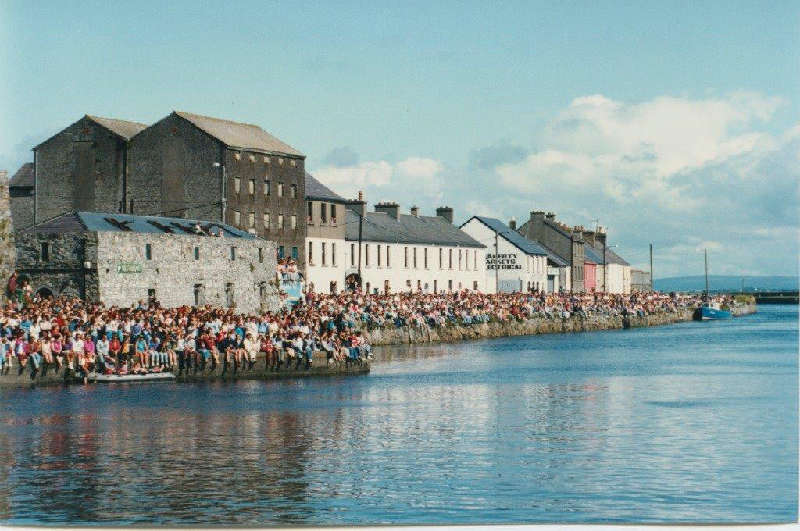
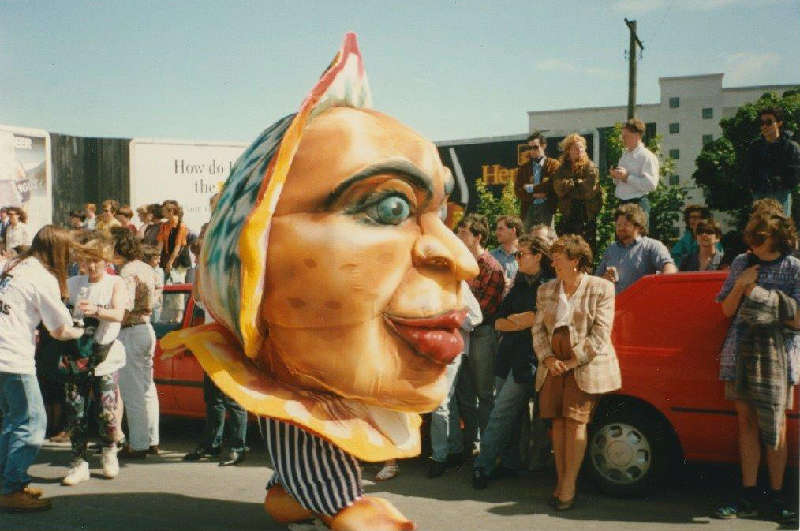
A lot of people would be put off by that, getting into an industry they had no experience in...
I see myself as very different to a lot of other people who work in the Arts. My background is sales, marketing coordinator, facilitator, producer. I often see myself as joining the dots and part of me joining the dots is if I'm unfamiliar, I know who to call. Over the years, a lot of people have been very helpful and supportive of me as I've progressed and that's actually one of the reasons I'm always keeping the door open in the office because I always want people to know that they can just walk in and ask a question. So that continuous analysis is part of what I do. The network and being able to ask people for help and be generous in sharing that back is the way that our world works. And actually, the arts world was a bit of an eye opener for me because when I first moved to Galway after seven years working with multinationals where it's fairly cutthroat and competitive and where the energy is not always positive, I came to Galway and everybody was offering to help. I was initially a bit wary because I wanted to see if this was for real. I don't know if it's an Arts thing or a Galway thing - it could be a bit of both - and once I realised that that was as it seemed, it just meant that I was much more able to work in Galway even though I was completely new to the town. So each time I've gone into a new place, it's been new but never alien because I've been able to find my feet quickly through networks. They say Ireland is a small open economy and we're completely vulnerable to the ways of the international world, but when you work in the Arts, you've got to be your own open personality as well because the give and take is how one basically creates and works with people who are creatives. It's a hugely important part.
What do you think it about the arts community that creates that sort of an environment?
There's different ways of looking at it. A very simplistic way is I used to be a drummer and no matter how good a drummer I was, I wasn't really effective on my own so one has to work with other people. It's possibly an over simplistic analysis or analogy. In the Arts world, where resources are often restricted, your capacity to deliver means you have to be creative in the way you use resources and part of your resources are humans and working with other people in that capacity. Even the cynics outside the Arts often talk about the artistic temperament; it's often that high energy, which is sometimes kinetic and sometimes frenetic. That energy is what allows the creation of new things. That's probably another lesson I've learnt from working in the Arts - you just don't close any avenue off, you've always got to be open minded. You just don't know where things are going to come at you from.
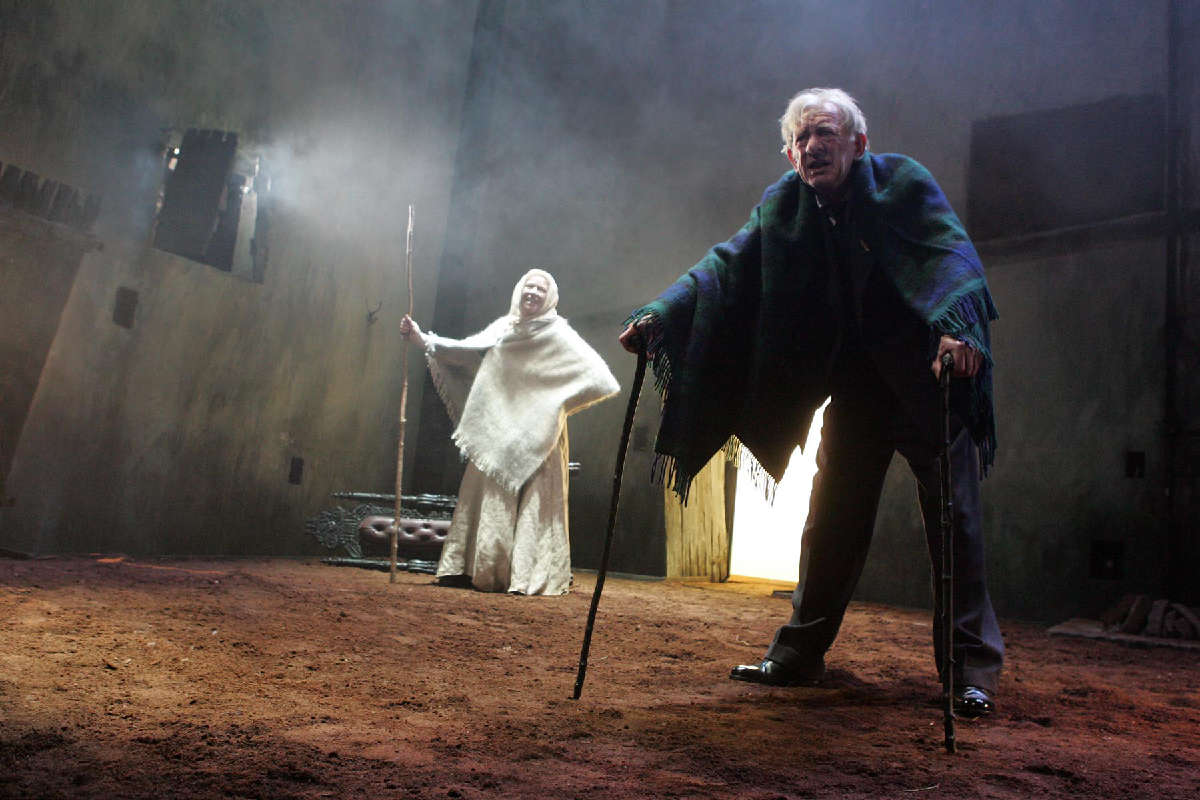
If you don't have the facilities and the environment in which artists can work and be creative, one that's not right, two that's not fair, three that's on the road to nowhere.
How would you describe yourself?
I see myself as a listener, I see myself as someone who tries to make things happen and I see myself as a person who tries to make things better. When it comes to getting money I can be creative, when it comes to selling tickets, I'm creative. I see myself as a supporting role but never passive. And I would see myself as being a persuader and a pusher. I am intuitive, I work on instinct and I don't procrastinate, but I do think about things before I move. If you come to me with a problem, I will immediately look at it from your perspective, I will then look at it from my perspective and then I will try to figure out the common ground so that we can go straight to solution without having to haggle. I honestly don't like arguing and I think the best thing to do with an argument is never to have it. Sometimes people who don't know me misinterpret that as a weakness, but they always find out in the end that it's not a weakness, it's more an attribute to be appreciated. I don't get cross but that doesn't mean I'm not passionate. I'm low key, I try to be low key. I genuinely try to listen. Jerome Hynes, the former CEO of the Wexford Opera festival who passed away a few years ago at a young age, had a huge influence on me. At his graveside, his son quoted something he had said, which was; 'never make anyone's day any worse than it already might be'. I just thought - that's brilliant. So here's a really tough CEO who created the National Opera Centre in Wexford, a small rural town in the South East of Ireland - you've got to be some character to achieve that and yet be conscious that if people come to you, you don't ever kick them when they're down.
How does art and culture influence your daily life?
I wouldnt say it influences, I'd say it's a part of. It's kind of seamless. I see the good that culture and arts participation and activity can do. It can be transformational in kids and young people's lives. When I was the manager of the Galway Arts Festival, I was involved in the setting up of Baboro in 1997 and again, I took a kind of marketing approach to that.
At that time, I saw children as a potential future audience, so that's why I was gung ho, but eventually, I realised two things: firstly, they were an audience in their own right, right now, so that was transformational. The second thing I learnt was that kids are the most critical audience you can have because if the show isn't good or engaging, you lose their attention whereas adults can be less critical. That's why I think that Arts and Arts activity is so important. I dont like it to be seen as a tool for urban renewal or social change or social engineering or whatever, as government agencies might be tempted to do. I see it for the value that it is in terms of it should be a part of our lives. Our mission here at the Town Hall Theatre is to provide the optimal programme for the maximum audience. We're trying to have a diverse audience. For us, culture is important, integral and I think it's a right as opposed to a privilege. That's why festivals are really important, because they break down or smash any perceived barriers.
What drives you?
Opportunity.
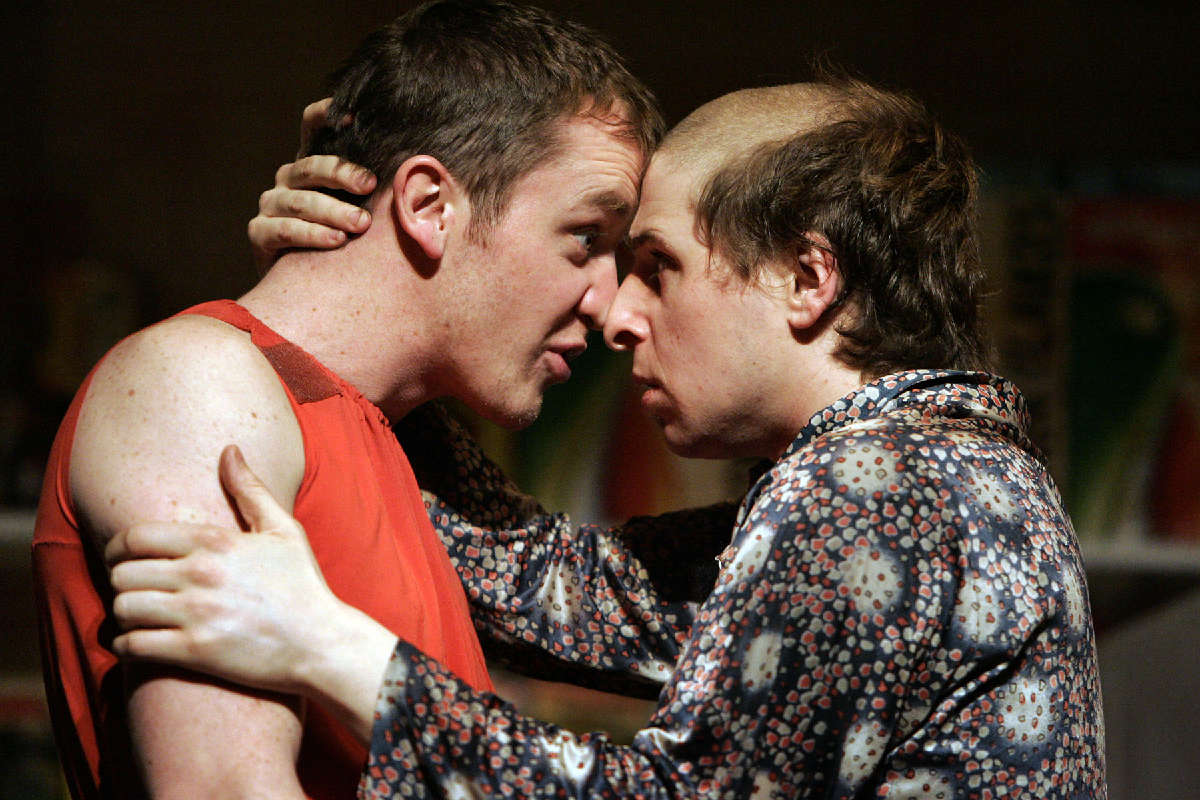
What project are you most proud of?
Theatre would be Druid Synge - that was 2005. Comedy, I worked with Des Bishop on 'My Dad Was Nearly James Bond' project from the very early stage from its inception to the Edinburgh premier. Music, there are two that really touch my heart; I was involved in the Radiohead gig in Castlegar sports ground back in 1996 where there were 20,000 people outdoors. Nothing like it had been done before in Galway. It was an amazing project to work on. More recently, I worked with MCD when Mumford and Sons played in Salthill Park and that was amazing.
Any exciting projects in the pipeline?
The only project in town is Galway 2020 - that's critical and Galway has to succeed in getting short-listed and then winning the accolade to be Capital of Culture in Europe in 2020. 2020 is the opportunity to up Galway's game to bring it up to standard. But win, lose or draw, the process is equally, if not more, important, in that even if we didn't win, the agenda for the next ten or 20 years - not just the cultural agenda, but the civic and community and city agenda - is influenced by the process that's ongoing now. One of the most striking things in the process is that it's driven by Galway City Council. It's a big risk for a local authority to become that open to people coming at them with ideas and suggestions. They've taken it back from the normal role of a local authority, which is to manage expectations, to allow stuff come at them. They're definitely listening.
Where is your favourite cultural city or place in the world?
Personally, I love West Coast cities, so I love Galway, Perth, Seattle. In terms of culture, I love Edinburgh during the festival. I just think it's awesome - when you're there with theatre or comedy - and I've been with both. I've been at the main festival and the fringe festival with shows, so I've seen Edinburgh from three different perspectives. But there's nothing like New York. I was there with Druid work and it's just electric, the buzz of walking down Broadway and seeing the array of shows. Quite a lot were Irish - you had Druid up the road, and down the road were two Martin McDonagh's - The Pillowman and the Cripple of Inishmaan. You're walking down the Spanish Arch in Galway and you meet Martin McDonagh and then a few weeks later you're in Broadway and you're seeing his production up on Billboards. So New York, from a theatre perspective, is probably my favourite.
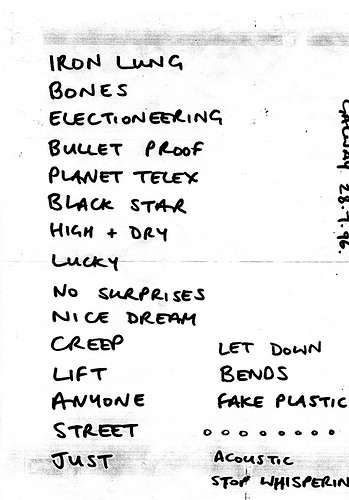
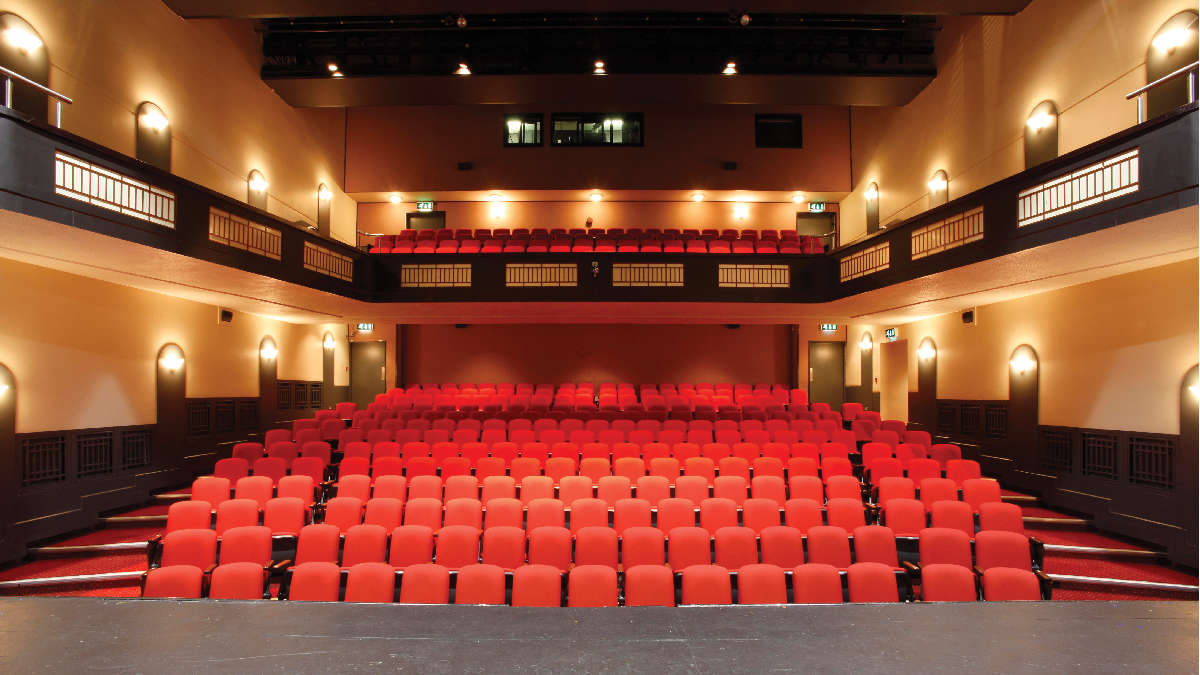
What are your personal views on Galway and culture, where its strengths lie and what could be improved on?
A lot done, a lot more to do. We've come a long way, but while we have the human infrastructure, there are gaps in the physical infrastructure and the reason they're important relates back to the human side of things. If you don't have the facilities and the environment in which artists can work and be creative, one that's not right, two that's not fair, three that's on the road to nowhere.
- Vinny Browne - Previous
- Next - Suzi Coombs